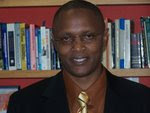Current generation forgets MLK's lessons
Ndirangu Wachanga
Issue date: 2/27/07 Section: OPINION
Print
Email
Article Tools
Page 1 of 2 next >
When he almost single-handedly took the onerous task to enlighten a society that had become what psychoanalysts would call a bad mother, a cannibal that devours her own offspring, Martin Luther King Jr., transformed himself into an institution. With other civil rights activists, he was telling the world that frustrated men would commit crime, outraged women would seek revenge, that neither persons nor property would be safe where justice was denied, poverty was enforced and ignorance prevailed.
He was telling the world, not just the United States, that no one is safe in a society that is founded on a conspiracy to oppress, to rob, and to degrade part of its members.
King, a man whose lips only knew the word peace, whose life exceptionally personified the significance of human dignity, ironically met his death through an assassin.
Were he alive today, King would be in a corporate-dominated world that is continuously becoming insecure. His advice would be timely guide in identifying what will save humanity at the turn of history: wealth, technological advancement or spiritual nourishment.
He would be living in a world that has become accustomed to wars, poverty, marginalization of peripheral societies, alcoholism and drug addiction, cases of suicide, brutal crimes; senselessly perpetrated, and erosion of human compassion, a bulky baggage of devastating indicators of human degeneration.
He would be warning us against threatening the biosphere; to quit endangering our environment, for therein rests a heritage we must safeguard for generations to come.
It is difficult to know what King would be telling a world that is hesitant to condemn human negligence; a world where ethical and moral principles have collapsed.
King would be asking why we have condemned millions in Darfur to servitude, to modern slavery. And what, one may ask, would be his message regarding the war in Iraq and the fight against terrorism?
For this is a man who maintained the need to "rise to the majestic heights of meeting physical force with soul force," that we may never allow "creative protests to degenerate into physical violence."
What would be King's message in a world where we have allowed millions to die of hunger all the while pretending all is well? Would he be tougher on a world that has lost compassion for the poor, subsumed virtues in vices, and developed an immoral attitude to work? What would King say of a world where insitutions are being threatened by mediocrity, where nations continue to militarily rise against each other with total disregard for the dignity of human life, where extremists blow themselves up in maternity hospitals?
For not heeding King's words that the good in humanity should arouse love, not hate; that human energy should only be used for what is good, that love has power and eventually triumphs over hatred; that we should not hate others for their ideas but to reject their acts and not to hurt them; we may never know answers to these questions. And we continue to deny ourselves the chance to "sing in the words of the old Negro spiritual, 'Free at last.'"
Ndirangu Wachanga is a Mayborn lecturer of the Mayborn Graduate Institute of Journalism. He may be reached at wn0003@unt.edu.

No comments:
Post a Comment